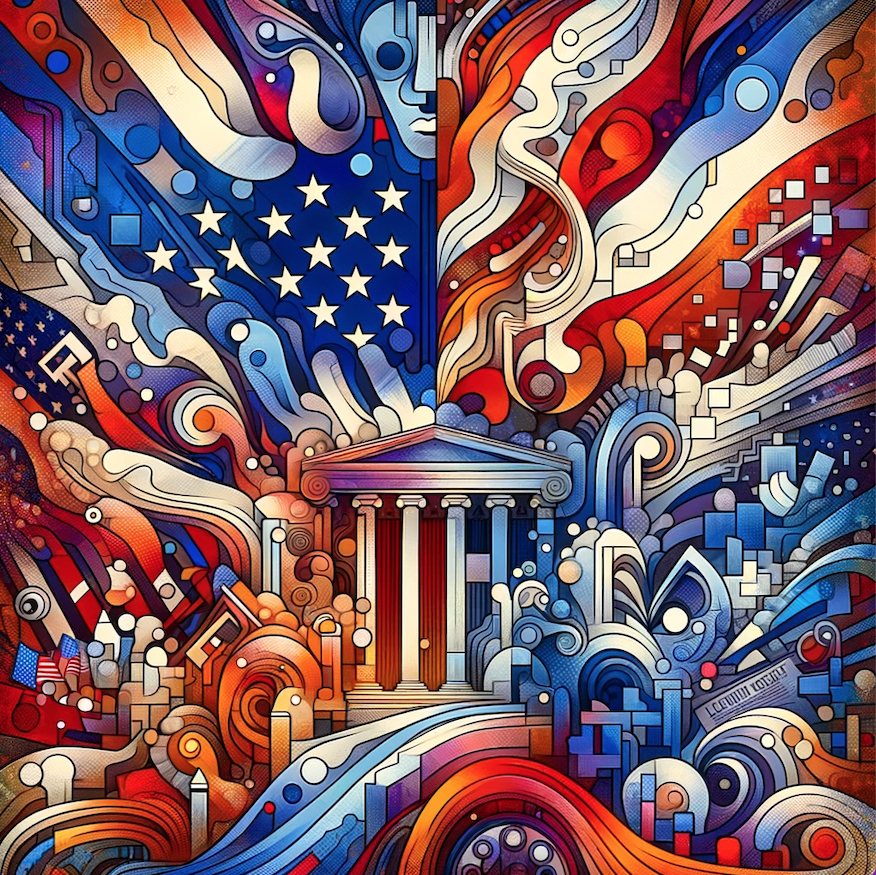The Primary Causes of U.S. Democratic Decline

The 2024 United States elections are anticipated to be highly consequential, not only for the immediate outcomes they will determine, but also for the health and stability of democracy in America.
This analysis explores the various factors that place democracy at a precipice during these elections, examining influences such as political polarization, misinformation, election security, and legal and constitutional challenges.
Political Polarization
- Intensifying Divides: Political polarization has reached levels that could threaten the democratic process itself. The deep ideological divides hinder bipartisan dialogue and often stall legislative processes. This polarization can lead to voters and politicians alike viewing the election in existential terms, potentially justifying extreme measures to prevent opposing parties from winning.
- Impact on Governance: As divides deepen, there is an increased likelihood of gridlock in governance. This can erode trust in democratic institutions, as the government appears less capable of responding effectively to the needs of its citizens.
Misinformation and Media Influence
- Role of Social Media: Misinformation has been a growing problem, especially amplified by social media platforms. Algorithms that prioritize engagement can often spread sensational and false content faster than factual information, misleading the public and skewing perceptions of reality.
- Mainstream Media’s Partisanship: Increasingly partisan mainstream media outlets also contribute to a warped electoral landscape. They can foster division and create echo chambers that reinforce entrenched beliefs, further polarizing the electorate.
Election Security and Integrity
- Concerns Over Voting Systems: Security concerns regarding voting systems have been a significant issue since the 2016 and 2020 elections. Fear about the vulnerability of these systems to hacking or tampering can undermine public confidence in the electoral outcomes. These fears, while unfounded, have been weaponized to the detriment of public confidence in elections.
- Legal Challenges: There has been a notable increase in pre-emptive legal challenges regarding electoral procedures and results. Such challenges can prolong electoral uncertainty and diminish public trust in the process.
Legal and Constitutional Challenges
- Supreme Court’s Influence: Recent Supreme Court decisions have had significant impacts on electoral laws, particularly concerning voting rights and election procedures. Decisions that are perceived as highly partisan can lead to further disillusionment with the impartiality of judicial oversight in elections.
- State-Level Legislation: Various states have enacted laws that change how votes are counted and how elections are managed. Some of these laws are controversial, arguing that they either protect election integrity or suppress voter turnout, depending on the perspective.
Conclusion
In sum, the interplay of intense political polarization, widespread misinformation, concerns over election security, and contentious legal battles poses a multifaceted threat to the democratic process. Addressing these issues is crucial not only for the sake of the upcoming elections but for the long-term health of the nation’s democratic institutions. Solutions will require concerted efforts from all sectors of society: ensuring accurate information dissemination, protecting voting rights, securing electoral systems, and restoring faith in the democratic process are essential steps toward maintaining the integrity and viability of U.S. democracy.

